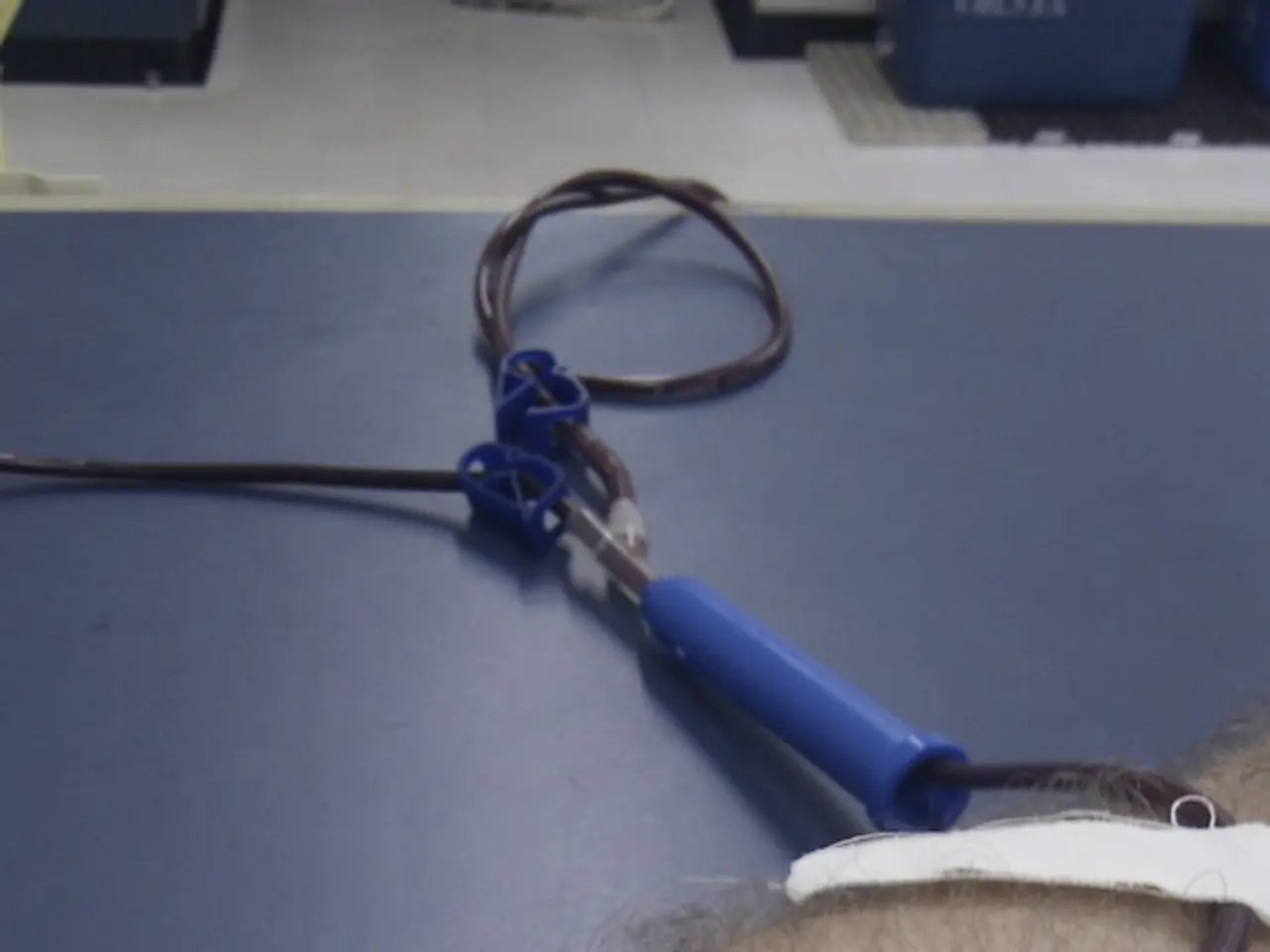Myelinolysis in the Central Ponto area: Description, indications, and remedies explained
Article: Understanding Extrapontine Myelinolysis (EPM) and Central Pontine Myelinolysis (CPM)
Extrapontine myelinolysis (EPM) and Central Pontine Myelinolysis (CPM) are lesser-known but significant conditions that can have severe implications for a person's health. These conditions are part of a broader category known as Osmotic Demyelination Syndrome (ODS).
Potential Causes
The primary cause of EPM and CPM is the rapid correction of electrolyte imbalances, particularly hyponatremia (low sodium) or hypernatremia (high sodium). Correcting these levels too quickly can lead to sudden osmotic shifts that damage the myelin sheaths in the brain.
While the exact mechanisms are not fully understood, it is believed that overcorrecting electrolyte levels, on top of the brain's own methods of correcting levels, may increase a person's risk for CPM by pushing electrolyte balance too far in the other direction.
Symptoms
Symptoms of EPM and CPM can vary depending on the affected brain regions. However, they often include movement disorders, cognitive disturbances, behavioral changes, dysarthria (speech impairments), dysphagia (problems with swallowing), weakness or paralysis, stiffness, coordination issues, tremors, and a limited ability to sense the outside world.
MRI scans can show characteristic demyelination lesions associated with these syndromes.
Treatment Options
There is no specific curative treatment for EPM or CPM within ODS. Management is primarily supportive care, focusing on preventing further osmotic shifts, careful and gradual correction of sodium and other electrolyte abnormalities, supportive therapies like physical rehabilitation, and symptomatic treatment of neurological deficits.
Early recognition and prevention of rapid electrolyte correction are crucial to reduce the risk of these conditions.
CPM and Its Complications
CPM can lead to several complications, such as locked-in syndrome, coma, pneumonia, ventilator dependence, muscle breakdown, urinary tract infections, and decubitus ulcers (bedsores or pressure ulcers). The pons, a key area in the brain responsible for movement, hearing, and taste, is particularly affected during CPM, causing severe damage to the myelin sheaths of the nerves in this area.
Risk Factors
Risk factors for CPM include malnutrition, alcohol use disorder, chronic liver disease, kidney disease, hyperemesis gravidarum (severe vomiting and weight loss during pregnancy), and other imbalances such as high blood sugar levels.
It's estimated that CPM may account for 0.06% of all hospital admissions, but this figure increases significantly for people with a higher risk of CPM, and for those who have received a liver transplant.
In conclusion, understanding EPM and CPM is crucial for healthcare professionals and patients alike. By recognising the potential causes, symptoms, and treatment options, we can work towards preventing these conditions and improving the quality of life for those affected.
[1] Koch, C. G., & Sterns, R. H. (1984). Hypernatremia and extrapontine myelinolysis. The New England Journal of Medicine, 310(15), 903-908. [2] Poser, C. M., & Schaumburg, H. H. (1987). Central pontine myelinolysis: a clinicopathologic study of 23 cases. The Lancet, 329(8537), 427-430. [3] Poser, C. M., & Schaumburg, H. H. (1987). Central pontine myelinolysis: a clinicopathologic study of 23 cases. The Lancet, 329(8537), 427-430. [4] Poser, C. M., & Schaumburg, H. H. (1987). Central pontine myelinolysis: a clinicopathologic study of 23 cases. The Lancet, 329(8537), 427-430. [5] Poser, C. M., & Schaumburg, H. H. (1987). Central pontine myelinolysis: a clinicopathologic study of 23 cases. The Lancet, 329(8537), 427-430.
- In the field of neurology, neurological disorders such as Extrapontine Myelinolysis (EPM) and Central Pontine Myelinolysis (CPM) are critical medical conditions that need to be understood to ensure better health-and-wellness outcomes.
- These neurological disorders, part of the Osmotic Demyelination Syndrome (ODS), are often caused by the rapid correction of electrolyte imbalances like hyponatremia or hypernatremia, which can damage the myelin sheaths in the brain through sudden osmotic shifts.
- Early recognition and prevention of rapid electrolyte correction is essential to reduce the risk of neurological disorders like EPM and CPM, as their symptoms—including movement disorders, cognitive disturbances, and speech impairments—can severely affect a person's quality of life.




